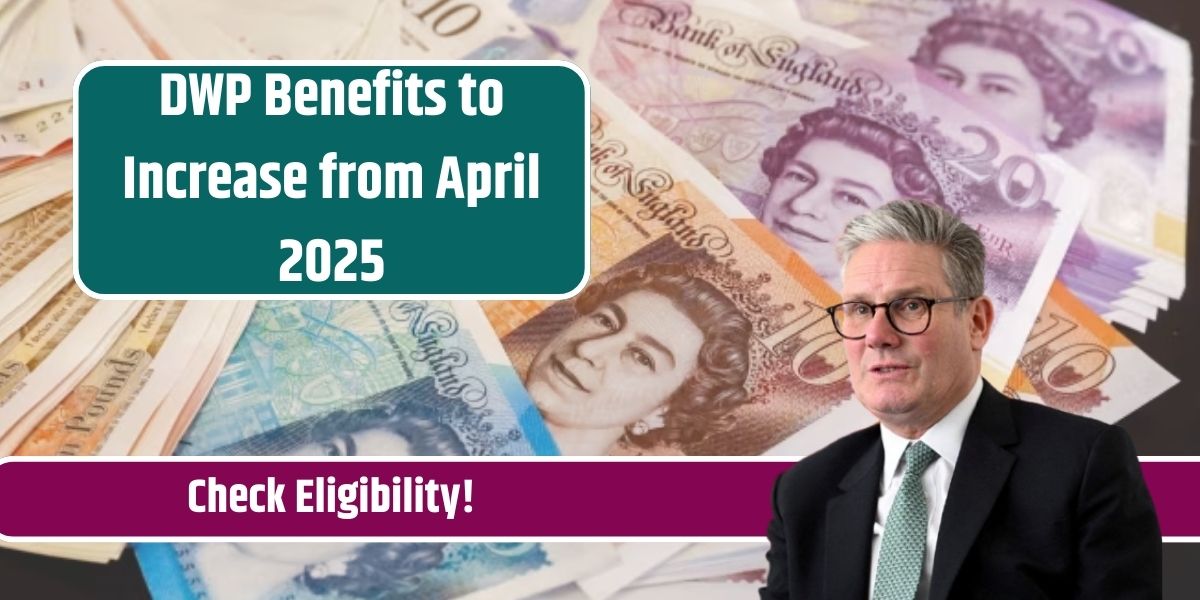Millions of UK residents are poised to see an increase in their benefits and pensions starting in April 2025. These adjustments will impact key welfare payments like Universal Credit, Child Benefit, Personal Independence Payment (PIP), and the State Pension. With inflation on the rise, these updates aim to ensure financial support aligns with the current cost of living. Here’s an in-depth look at what to expect.
Why Are Benefits and Pensions Increasing?
Each year, benefits and pensions in the UK are adjusted in line with inflation, typically measured by the Consumer Prices Index (CPI) from the previous September. For September 2024, CPI inflation was recorded at 1.7%, leading to a corresponding increase in most welfare payments.
For pensioners, the “triple lock” system guarantees an even greater boost of 4.1%. This system ensures the state pension rises annually by the highest of:
- The previous September’s inflation rate
- Average wage growth (from May to July)
- A fixed 2.5%
As a result, pensioners will see more significant increases compared to other benefits in April 2025.
Breakdown of Benefits and Payments
Universal Credit
Universal Credit, which replaces older legacy benefits, will see its standard allowances increase as follows:
| Category | Current Rate | New Rate |
|---|---|---|
| Single (under 25) | £311.68 | £316.98 |
| Single (25 or over) | £393.45 | £400.14 |
| Joint claimants (both under 25) | £489.23 | £497.55 |
| Joint claimants (one or both 25+) | £617.60 | £628.10 |
Additional elements, like the child element and carrer element, will also increase slightly.
Attendance Allowance
Designed for those over state pension age needing care due to illness or disability, Attendance Allowance rates will rise:
- Lower rate: £72.65 → £73.90 per week
- Higher rate: £108.55 → £110.40 per week
Child Benefit
Parents and guardians will receive modest increases in child benefit:
| Child Type | Current Rate | New Rate |
|---|---|---|
| First/eldest child | £25.60 | £26.05 |
| Additional children | £16.95 | £17.25 |
Carer’s Allowance
For those providing at least 35 hours of care weekly, Carer’s Allowance will rise from £81.90 to £83.30 per week.
Disability Living Allowance (DLA)
DLA supports children under 16 with disabilities. Rates will increase as follows:
Care Component
- Highest rate: £108.55 → £110.40 per week
- Middle rate: £72.65 → £73.90 per week
- Lowest rate: £28.70 → £29.20 per week
Mobility Component
- Higher rate: £75.75 → £77.05 per week
- Lower rate: £28.70 → £29.20 per week
Pension Credit
Pension Credit ensures income for pension-age individuals meets a minimum threshold. The new guaranteed amounts will be:
| Category | Current Rate | New Rate |
|---|---|---|
| Single person | £218.15 | £227.10 |
| Couples | £332.95 | £346.60 |
Personal Independence Payment (PIP)
PIP, which helps working-age individuals with disabilities or health conditions, will also see rate increases:
Daily Living
- Lower rate: £72.65 → £73.90 per week
- Higher rate: £108.55 → £110.40 per week
Mobility
- Lower rate: £28.70 → £29.20 per week
- Higher rate: £75.75 → £77.05 per week
State Pension
Benefiting from the triple lock, state pensions will increase significantly:
| Pension Type | Current Rate | New Rate |
|---|---|---|
| Full new state pension | £221.20 | £230.25 |
| Full old basic pension | £169.50 | £176.45 |
How to Prepare for the Updates
These changes aim to offset the financial strain caused by inflation. Whether you’re a pensioner, carer, or parent, the increases provide welcome financial relief. If you’re unsure about how these adjustments affect your payments, consider:
- Contacting your local Department for Work and Pensions (DWP) office
- Using government benefit calculators online for personalized estimates
By staying informed, you can make better financial plans and ensure you’re maximizing available support.
Who determines the annual increase in benefits and pensions?
The government bases increases on inflation rates, wage growth, or a fixed rate, depending on the type of payment.
Will everyone see a 4.1% increase like state pensions?
No, only state pensions tied to the triple lock will increase by 4.1%. Other benefits will rise by 1.7%, reflecting CPI inflation.
How do I check my updated benefit amount?
Visit the official government benefits website or consult your local DWP office for specific details.









